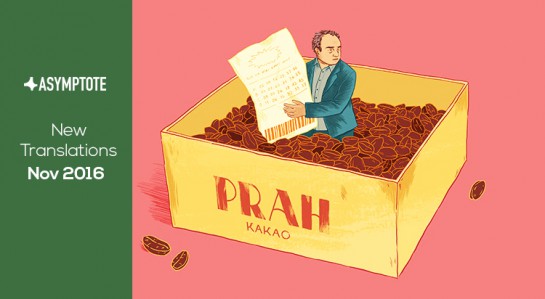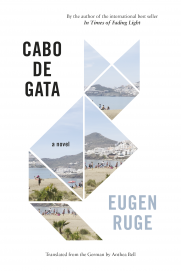This week, our editors are bringing some fascinating news from their respective regions: the controversy surrounding a new prize for translated literature; the newest additions to the Swedish Academy (which adds two extra voices to the future electors of the Nobel Prize for Literature); and the latest visual art exhibitions and programmes that study the intersection between image and text. Read on to find out more!
Areeb Ahmad, Editor-at-Large, reporting from India
Earlier in May, the winner of the inaugural edition of the Armory Square Prize for South Asian Literature in Translation was announced to be Musharraf Ali Farooqi, for his translation of Siddique Alam’s The Kettledrum and Other Stories from the Urdu. The book will be published next year by Open Letter, and an excerpt is available now on Words Without Borders. The prize, however, has had its fair share of controversy over the last few weeks regarding another author, Nandini Krishnan, who had appeared twice on the shortlist. According to her, the prize had confidentially informed her that she was chosen as the winner for her translation of Charu Nivedita’s Raasa Leela from the Tamil and then asked for more excerpts; upon receiving the text, however, they then withdrew the win, citing “reputational risk and potential liability.” Krishnan in turn withdrew both of her books from consideration after revealing the incident, and the prize eventually released a statement; the announcement of the winner was then postponed from early April to mid-May.
Zubaan, a small feminist press that only publishes women, recently released The Keepers of Knowledge: Writings from Mizoram, edited by Hmingthanzuali and Mary Vanlalthanpuii—the fourth entry in a series of anthologies that seek to highlight work from Northeastern states of India, which are often neglected from the mainstream. The project is in collaboration with the Sasakawa Peace Foundation, and the four anthologies so far have featured writing in English and in translation—poetry, prose, essays—as well as visual art. It is significant in collating various indigenous literatures and making them available to a wider audience, going far beyond the limits of an archive. The fifth entry, We Come from Mist: Writings from Meghalaya, edited by Janice Pariat, is currently in the works and expected to be out in a few months. Zubaan has also consistently championed Indian women writers in translation, and two other notable recent releases were Andhar Bil by Kalyani Thakur Charal, translated from the Bengali by Ajit Biswas, and The Stomach that Chewed Hunger and Other Stories, edited by Bama and translated from the Tamil by Ahana Lakshmi. READ MORE…





